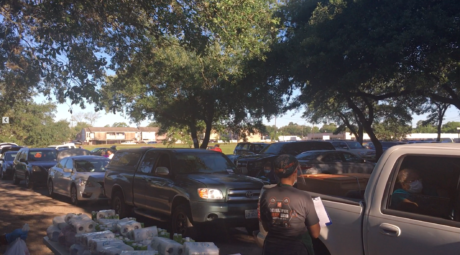
Many immigrant families are experiencing disproportionate economic and financial challenges during the COVID-19 pandemic – challenges made more acute by restrictive federal immigration and safety net policies, including the recently implemented “public charge” rule.
A new report from researchers at the Urban Institute assesses Houston’s efforts to support immigrant families in the face of chilling effects around the public charge rule and the COVID-19 pandemic. Episcopal Health Foundation sponsored the report.
In interviews with 55 people across 16 organizations and focus groups with 35 adults from immigrant families in Houston, Urban researchers found that many immigrants in Houston are reluctant to participate in public programs because of immigration concerns. And researchers found that service providers catering to immigrants’ health care, nutrition, legal services, and basic needs in Houston are facing tensions between federal, state, and local stances on immigration, limitations in their ability to keep up with and inform families about changing immigration policies, and difficulties coordinating a unified message on a large scale. Nevertheless, Houston has many strengths that position the city to help immigrant families – including a robust immigrant-serving social service infrastructure and emerging efforts to address the chilling effects of the public charge rule.
The exclusion of many immigrant families from federal COVID-19 relief efforts makes aid out of reach for immigrant families experiencing negative economic impacts of the crisis, and assistance from new local funds to address pandemic-specific needs has not reached many because of ongoing concerns about the public charge rule.
The findings highlight key lessons to inform efforts to help immigrant families in Houston, including making training on the public charge rule available for all frontline staff, utilizing simple and consistent messaging, and creating a model for rapid response and messaging.